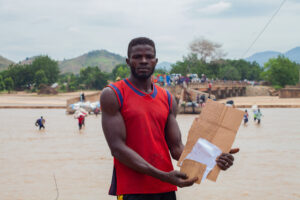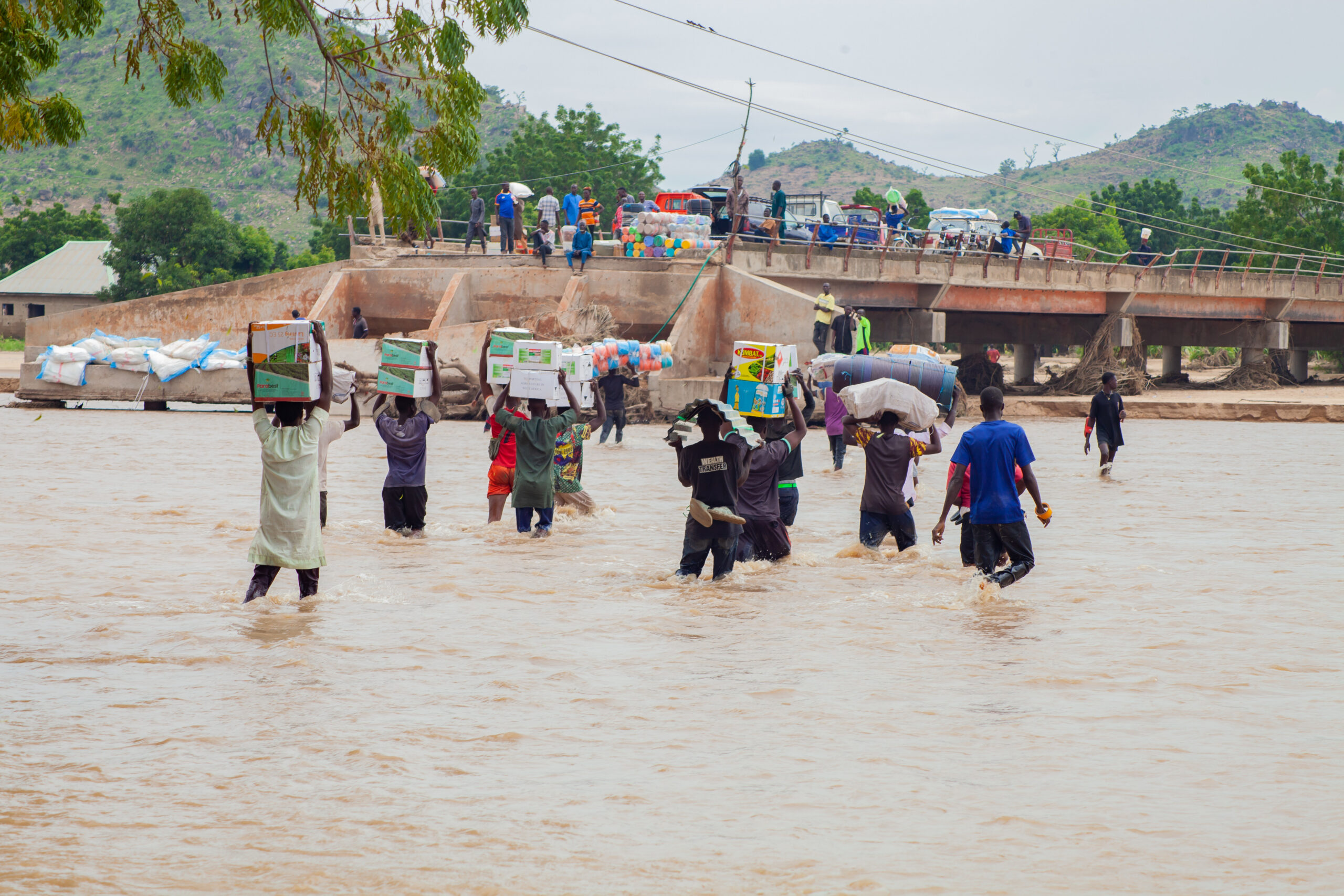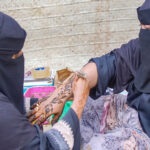The rain had begun by the time Chukul Yahaya retired to sleep after a heated discussion with his friends at the local tea joint. His hopes of a sound sleep were shattered hours later when he woke up shortly afterwards to frantic knocking on his door. It was his second wife who came with news of a river, about 500 metres from their house, that had overflowed because of the heavy downpour. Chukul ventured outside to see the approaching flood, which had swept through people’s homes.
That night, Chukul and his wives and children sought refuge at a filling station in their hometown of Shuwa, a community in the Madagali local government area of Nigeria’s Adamawa State.
The following morning, Chukul returned home to a scene of devastation. His house had been destroyed by the flood and all their belongings washed away. With no safe abode, he and his household joined other displaced families at the community primary school. “It’s painful to find yourself in this situation. Especially when you never saw it coming. But we have to accept it,” said 32-year-old Chukul, who had lived all his life in Shuwa.
The floods that happened in Shuwa on August 21 and 29 have caused widespread destruction, including the collapse of infrastructure and the loss of lives. Experts have attributed these events to climate change and water releases from the Lagdo dam in Cameroon and the Kiri dams in Adamawa State.
According to the National Emergency Management Agency (NEMA), the water pressure during the flood caused the bridge over the Shuwa River to collapse. The bridge over the Shuwa River stretches along the Mubi-Minchika-Madagali highway, connecting to other parts of Borno State. The collapse took a heavy toll on neighbouring communities, which faced shortages of essential goods and medications due to the impassable routes.
One Shuwa resident noted that the bridge had been damaged by a previous flood years ago, but it was soon repaired. Until the recent flood, there had been no prominent damage to the bridge, he said.
Following the collapse of the Shuwa bridge and the resulting isolation on neighbouring communities, Chukul mobilised a team of young people to assist people, particularly the weak or elderly, in crossing the river.
“If we don’t do this work, some communities will not get food and other essentials,” Chukul told Prime Progress.
Through the committed work of his team, Chukul explained, the neighbouring communities were able to get vital supplies.
Some of the youths left their jobs to volunteer at the site of the collapsed bridge. Sometimes, they get compensated for their hard work.

On days when he is not working on his farm, Ijafiya Mathias, 22, travels from his farm to help ferry luggage across the Shuwa River. “I come here to make a little money and also help people. It’s very stressful,” he said.
“People pay N2,000 depending on the weight of the items, like for carrying a heavy gas cylinder, or N1,200 for other goods. For animals like goats and sheep, it’s N500 to N700. For a motorcycle, it’s N4,000 to N5,000,” explained 25-year-old Ishaku Audu, a driver who ferries goods from Minchika to the Shuwa River.
As leader of the team, Chukul keeps a meticulous record of all goods and individuals crossing the river to ensure transparency and prevent luggage from getting lost. However, the work is far from easy. He and his team often brave strong currents carrying heavy objects with no protective gear to shield them.
Despite their hard work and the sense of duty that motivates them, the young volunteers hope for the bridge to be repaired soon. “We are begging the government to come and repair the bridge,” Chukul said.
At the end of each exhausting day, Chukul compensates his team before heading back to the Shuwa IDP camp, where his family now lives. Rebuilding his home and community feels like a distant dream, but as he continues to lead the river crossing efforts, he remains hopeful that better days are ahead for everyone.
Chukul Yahaya and his family were caught off guard by a devastating flood that hit Shuwa, Nigeria, causing widespread destruction and displacing many families. The flood resulted in the collapse of the Shuwa bridge, cutting off essential supplies to nearby communities due to impassable routes. In response, Chukul organized a group of young volunteers to assist people in crossing the river and ferrying goods, ensuring vital supplies reached isolated areas.
Chukul's team, which included individuals like Ijafiya Mathias and Ishaku Audu, charged small fees for their strenuous efforts. Despite the challenging nature of the work, which included navigating strong currents without protective gear, their dedication has been crucial in alleviating the impact of the flood. Chukul maintains meticulous records to prevent any loss of goods and hopes for government intervention to repair the bridge soon. Each day ends with compensation for the volunteers, and Chukul returns to his displaced family with the hope of rebuilding their lives.






